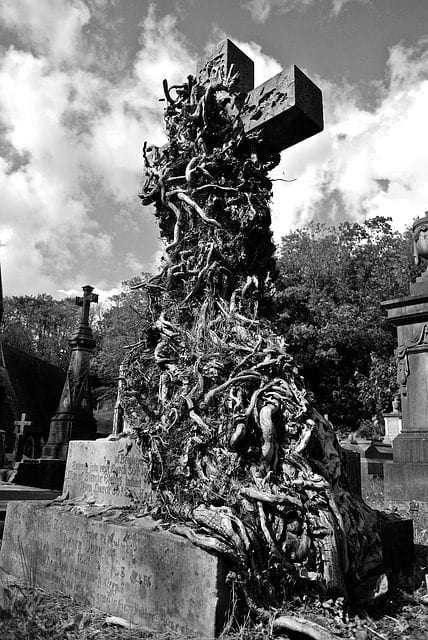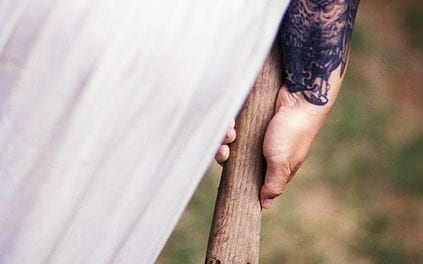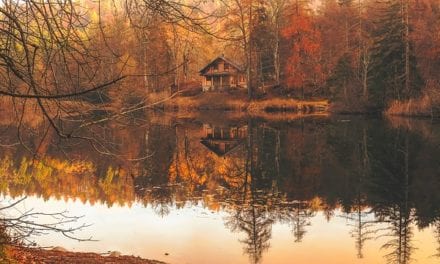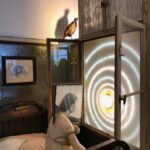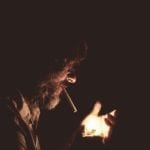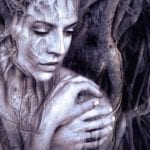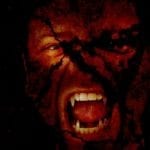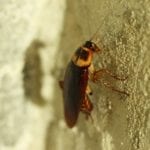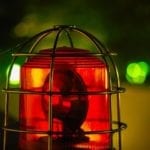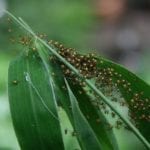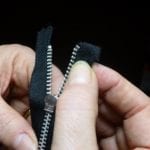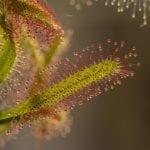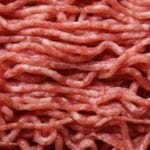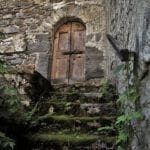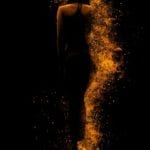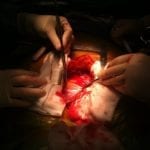The old man lowered his gaze to the fire and poked at the simmering coals with the steal toe of his boot. He held a tin cup that clanged against a wedding ring whose match was buried in Lakeview cemetery. Constance waited for him to speak and clutched the sleeping bag around her shoulders, despite the gauzy heat that clung to the forest. Even the branches of the oak trees seemed to sag beneath the close weight of the night, and the ferns drooped like hunched trolls in the shadows beyond, the dim firelight mimicking movement. Constance shivered.
The old man inhaled deeply and coughed.
“What do we do with the bodies?” she asked, her voice sounding somehow metallic against this savage landscape. The old man lifted his eyes to a place over her shoulder, a place she could not look; she knew that inside the tent, the corpses of her teammates were stretched out atop one another, their faces stripped as much of skin as of identity. She knew the bodies instead by their clothing: John by the tattered remains of an old college sweatshirt, Rich by the jade pendant that hung around his neck, Sharon by her favorite pair of cargo pants, now shredded as if by the claws of a great wild animal.
But, no animal had done this.
The old man did not answer her question. His eyes, stained a hellish red by the dying fire, hovered over the tent and she thought she saw his tongue flick out between bloody lips. Surely she must have imagined this, as she’d imagined the events that had transpired earlier in the evening, once the sun had settled low and purple beneath the blanket of Lake Michigan.
Because what she thought she saw was impossible.
She had heard the screams from the forest. Lichen specimen forgotten, along with the tools required to collect it, she’d run back to camp afraid that a bear had broken into their food supply, but her instinct, the thing she’d so resolutely denounced as a scientist, told her to run away, not toward. She ignored it. Why had she ignored it?
In the growing darkness of the sunset, she thought she saw the old man gnawing on Johnny’s face, her colleague’s legs kicking helplessly, hands flailing and clawing at the shock of white hair on the old man’s head. The firelight revealed Sharon and Rich, both twitching like cockroaches on their backs, wet moans escaping lipless mouths. In the days to come, she would not recall lifting her flashlight to shine the shaky beam on the old man’s face, but it would reveal the same wild inhuman eye-shine that she remembered in the rabid coyote that scavenged her garbage cans for a picked chicken carcass. She would think of that coyote many times after this night.
“Professor?” she’d whispered, unconvinced that the creature looking up at her with blood and flesh dripping from his chin could be the mentor she’d admired for the better part of her career. Instead of replying, he dug his impossibly long fingernails into Johnny’s eye socket, plucked the orb from his skull and popped it into his mouth like a chocolate truffle. Constance stumbled backward with a cry and this, strangely, woke the old man from the beastly trance that inspired his hunger. He fell onto his face beside the corpses of his victims and sighed, exhausted from his feast.
Rooted as much to her place as the ferns at her feet, but unable to bear the sight any longer, Constance dropped the flashlight. She remained there, torn between fleeing and looking for survivors. In the end, altruism suffocated her fear and she approached, picking through the bits of entrails and clumps of hair to reach the old man. Constance felt his sticky, wrinkled neck for a pulse, and he moaned beneath the pressure of her fingers before sitting up, his eyes as empty as the stuffed possum that he kept in his office.
“Is it gone?” he murmured.
“I—”
“Is it gone?” he repeated, louder. “Did you see it?”
There was such horror in his eyes that Constance began to question her own. Had she imagined it? Could a bear, like she’d originally thought, be capable of such violence? Was it a wolf that she’d seen in the dim light, or some other undiscovered species of beast? She helped the old man to his feet and offered him a towel to clean his face, but he refused it. They had sat by the fire together in silence, drinking coffee as on every other night, bound by tragedy.
She asked again what he thought they ought to do, though she didn’t expect an answer. When his eyes met hers, she recognized the man he had been earlier in the day. His lips parted and the cup fell from his hands, and Constance could see the weight of memory descend upon him. Words moved over his tongue and behind his lips, but did not make it past the screen of blood that inexplicably bubbled up from his throat and then filled the sockets of his eyes like a chalice of communion wine. Before the milky blindness overtook his eyes, they conveyed a single, urgent word: run.
And so she had. She would wake up the next morning behind the wheel of the company pick-up truck, parked in front of a diner 200 miles from the sight of their camp, and she would never regain the memory of how she had arrived there.
After Constance returned home, presumed the only surviving member of the biological research team, her friends could force her neither to venture beyond her house after dark, nor speak of the reason for her resolute fear. Even when the police and the press gathered like turkey buzzards around her lakeside rancher, she greeted them only with warnings.
You don’t know what’s out there.
It clung in willowy shadows to the corners of her house, creeping up like ivy and tickling the wind chimes on her porch. She saw it in the edges of her vision, and heard it in the wind that sprung up like a spirit out of the inky depths of the water. Constance knew in her heart that it would come to claim her. It was only a matter of time.

